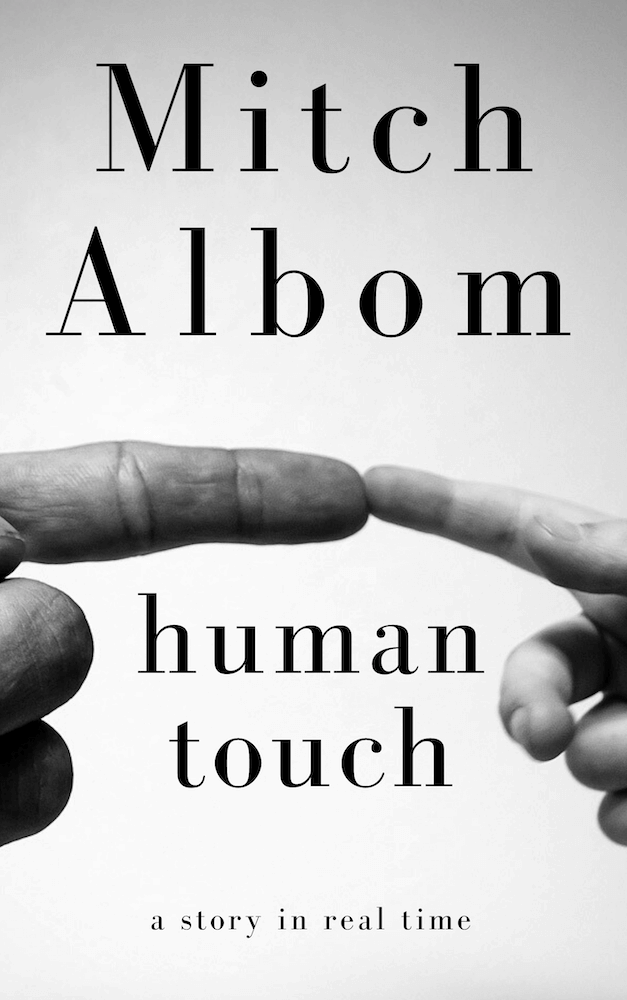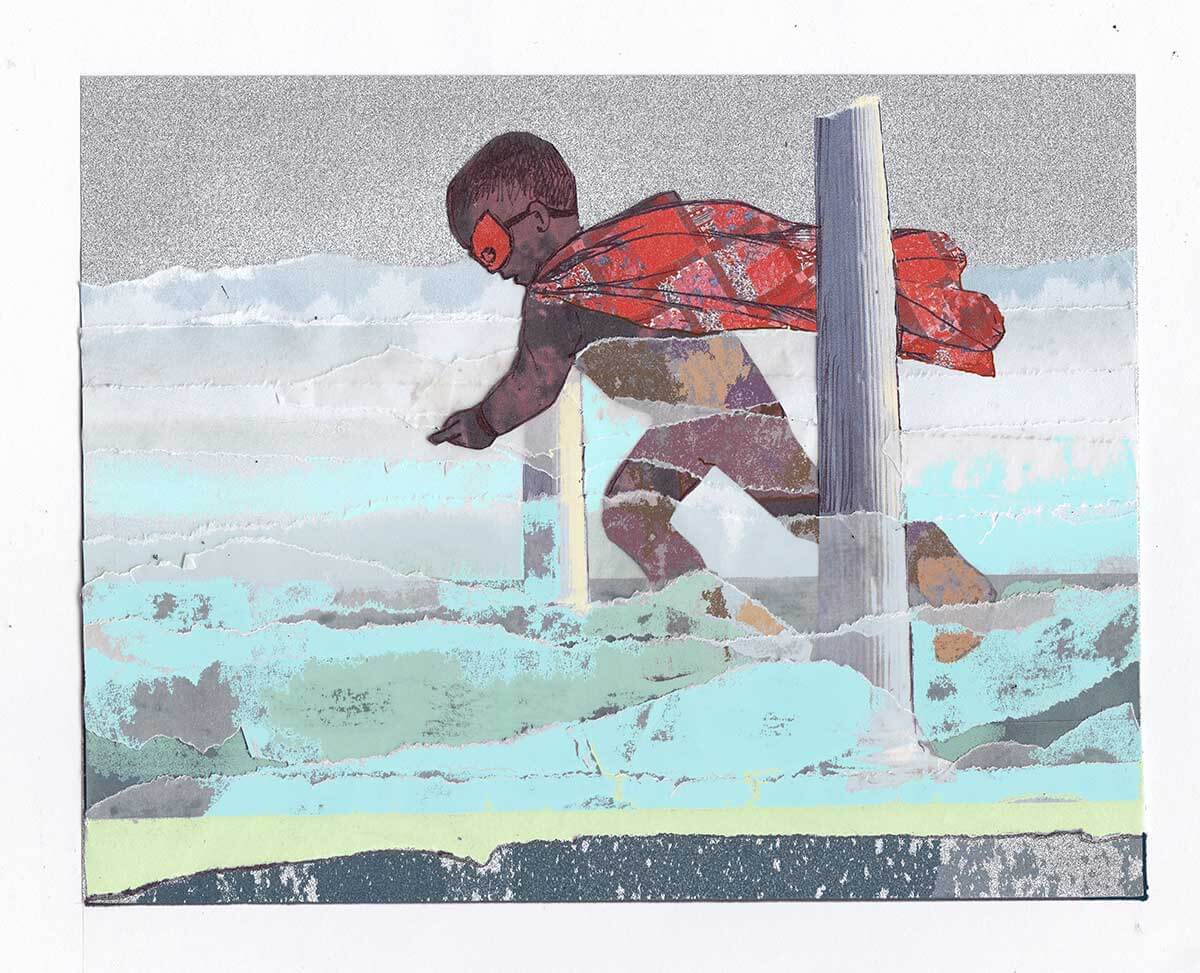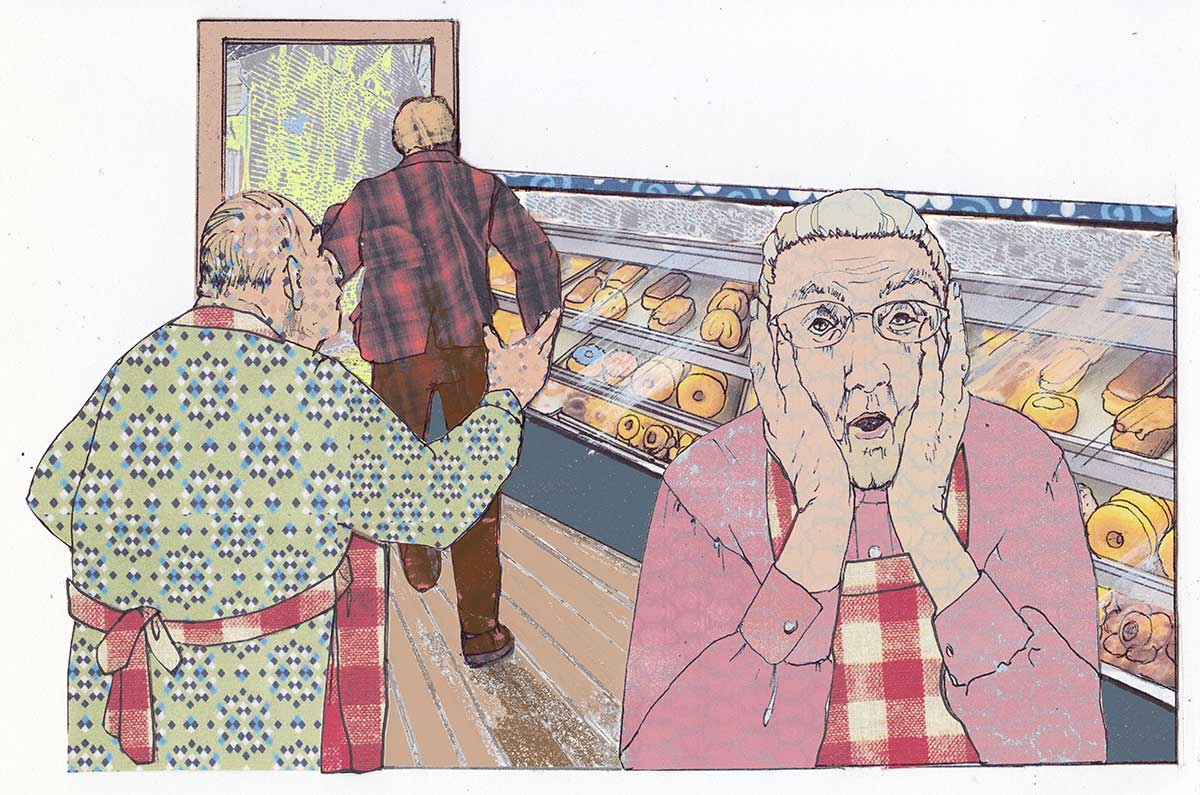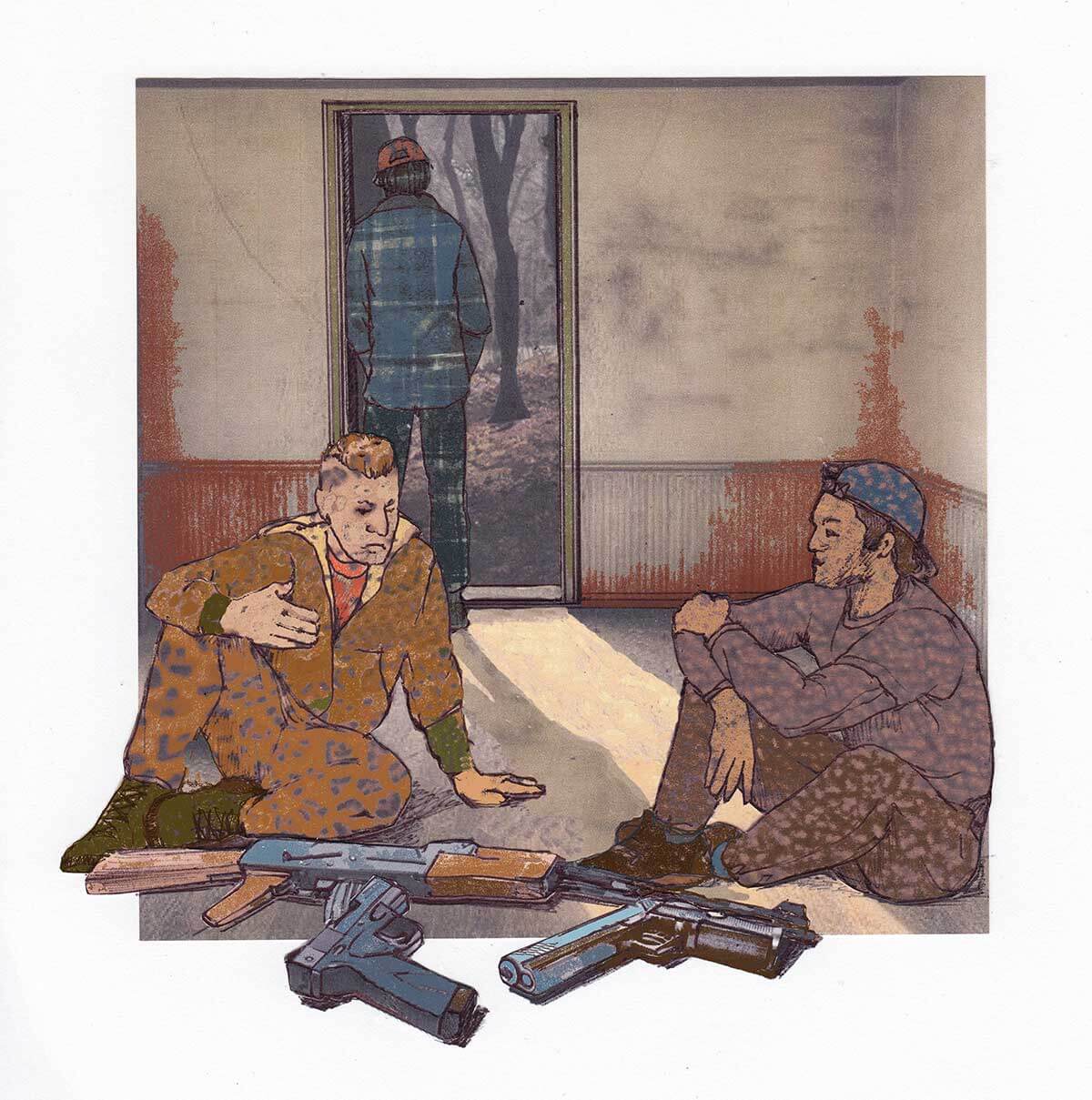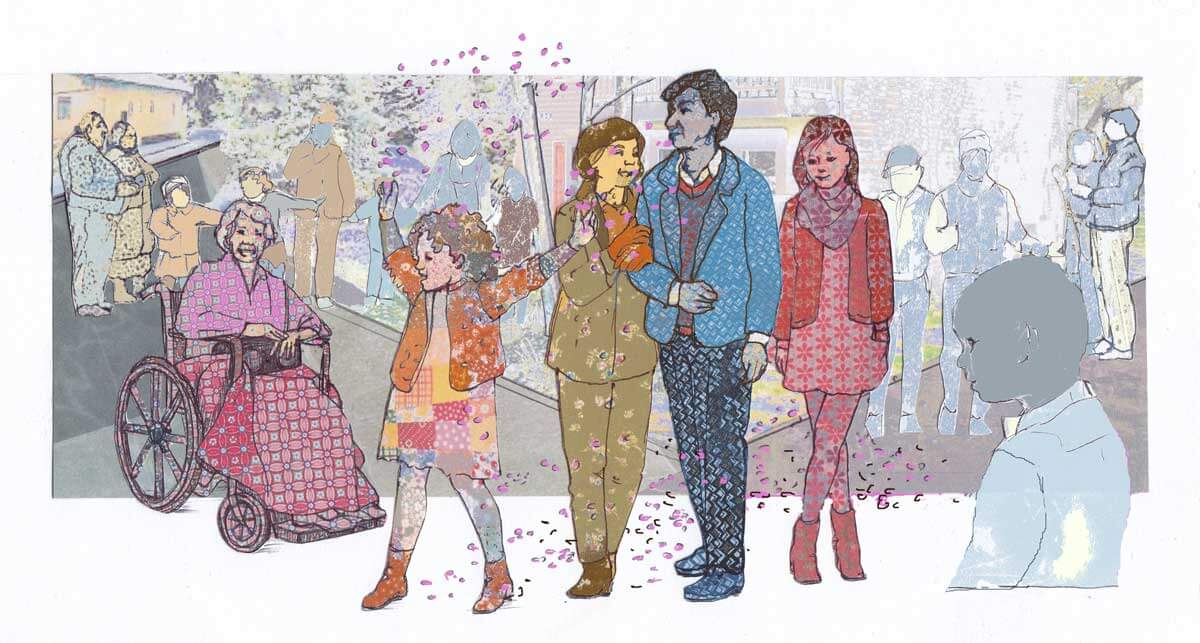← Previous
Next →
Need to Catch Up?
If you’re just getting started or need a refresher, click the link to watch a recap
Week Ten
Greg enters the room to see a nurse holding up an iPhone. The nurse lifts a gloved finger to her mask, signaling Greg to be quiet.
“Dad, we love you so much…” he hears a voice say from the phone speaker. “You were the best father anyone could have…”
In the bed lies a man on a ventilator, eyes closed, head slightly tilted. He has a full head of dirty blond hair and thick eyebrows. His mouth is covered by the ventilator mask.
“Oh, Dad…”
The voice cracks into sobbing. Greg feels frozen in his feet. He checks the monitors; the patient’s heart rate is just a few beats a second, and the oxygen level is minimal. The alarms are flashing, but the sound is off. The nurse must have shut them to give the family a quiet moment.
“Goodbye, Dad…We’ll see you again…”
He hears other people now crying over the phone’s speaker, as the nurse plays cameraperson. How have things come to this? Greg feels tears welling up, but he can’t even wipe them away, not without peeling off his gloves, his mask and his eye shield, then finding a sink with hot water and sanitized towels.
When every move of every day has to change in every way. That was how someone had defined a severe pandemic to him. Surely, they are there now. Nothing is normal anymore, not even dying. Greg watches the patient take his final breath. The nurse instinctively moves towards the bed.
“Nurse?…” a voice from the phone says. ”Nurse, what’s happening?…”
LITTLE MOSES is having another dream. He is back in the clouds, but this time he is wearing his Flash costume, a red cape and a red eye mask. He races through the mist, feeling no effort in his legs.
“Oooh, I am faster than ever!” he tells himself.
Suddenly, he is running through two pillars. When he passes beneath them, the pillars shrink down fast, to become the legs of the man he has seen before in this dream, the Haitian man with the missing teeth and the earring.
“Ooh, you are here again,” Moses says.
“Mwen dwe montre-w yon bagay,” he says in Creole. I have to show you something.
“Can you talk English?”
“I can talk anything you like, Little Moses. Come.”
He leads him over to a giant soft serve ice cream cone.
“Is that for me?” Little Moses asks.
“Does it look good?”
“It looks yummy.”
“Yes. But not all that looks good can be trusted, Little Moses. Do you know what ‘trusted’ means?”
He scrunches his mouth. “Um, I think it means you don’t tell a lie. Like my Mommy.”
“Yes. Your mother you can trust. This you cannot. Look.”
Little Moses gazes atop the ice cream and sees a big hat. It is green, brown and orange, and has the image of a deer with antlers on the front.
“That is a very big hat,” he says.
“Little Moses,” the man says. “If you see this hat, you must run. Do you understand?”
“Like the Flash?” Moses asks.
“Faster,” the man says.
BUCK IS in his bedroom. He rubs his forehead and feels the bump from his collision with a No Parking sign. It hurts like hell. He actually blacked out for a minute. When he came to, there were police around him with protective masks and his grandfather was saying, “Yeah, that’s him.”
Somehow, Buck wasn’t charged for having a gun. His grandfather must have told the cops something. The two of them didn’t speak on the ride home. Buck sat in the bed of the pickup truck, the cold air blowing in his face all the way from Lansing.
Now he’s quarantined to his room.
He hears a soft knock.
“Yeah?”
The door opens a crack. His brother Daniel offers a grin.
“Hey, wild man,” Daniel says.
“That’s me,” Buck says, rolling his eyes.
“Where did you go?”
“Man, you don’t want to know. It was crazy.”
“You didn’t stay at the motel.”
“Nah. Screw that.”
“Grandma was crying every day.”
Buck sighs. “I know. I was pissed at Pops. I mean, first jail, then he puts me out?” He drums on his knees. “And now I get quarantined. Great life, huh?”
“Why’d you take his gun?’’
Buck hesitates.
“Protection.”
“Where’s the other ones you took?”
Buck looks out the window. He sighs.
SAM STEERS his car up Woodward Avenue, which was once the bustling center of shopping, restaurants and sports venues in Detroit. Now the city looks like a zombie movie set. Every store is dark and closed. The streets are empty, save for a person here or there in old clothes, often staggering as if drunk.
How would the end of the world be different than this? Sam wonders. The virus has now hit 200 countries, has stricken millions worldwide, and has killed over 300,000 people with no end in sight. Economies are devastated. Unemployment is rampant. And everyone keeps saying going out won’t be safe until they have a vaccine, which, depending on who you listen to, will take from one to seven years.
Sam isn’t waiting. He’d gone downtown this morning to meet his boss in the lobby of their office building. He’d passed the garage where he usually parks his car, but thinking about the crazy man who’d chased him there and called him a “chink” and bashed his hood and spit on his windshield – well, no thanks. Instead, he just parked on Woodward. There were no other cars. No real traffic. He felt like a cowboy in the Old West, riding up on his horse, tying it to the post, and pushing through the saloon doors.
“So, Sam, what’s up?” his boss, Larry, had said.
“I’d like a transfer,” Sam had replied.
The whole conversation took 10 minutes. The two men stayed a safe distance apart. Sam requested a move out west, specifically to the San Jose, California office.
“You sure?” Larry said. “It’s really expensive to live there.”
“Yeah,” Sam said, “but lots of tech.”
What he didn’t say was the real reason, that he wanted to live someplace where the Asian population was closer to the majority. There were towns in northern California where it was the majority. He’d researched them. If America was going to blame people who looked like Sam for upending their country, he’d be safer in big numbers.
He gets back in his car and drives past the Detroit Tigers baseball stadium, which normally at this time – mid-May – would be humming with activity, tens of thousands of fans heading in for a game.
Instead, Sam can see directly into the massive structure and the countless rows of empty, folded seats. Such a huge place to be so lifeless. High atop a pole, a flag blows lonely in the breeze, near giant light towers that seem superfluous. There hasn’t been a game here since last fall. There won’t be another for – who knows? Months? A year?
As he turns onto the service drive of the highway, he sees an old Ford that looks familiar heading the opposite way. He catches a glimpse of Pastor Winston behind the wheel.
“What’s he doing down here?” Sam wonders.
PASTOR WINSTON walks the halls of the quarantine shelter, distributing food. He has been coming here for a week now and has learned the names of a few of the clients. Most, he discovers, are poor, without family, or homeless.
“Here you are, Marcus,” he says to the man in the first room, a thin fellow in his 70s, with deep bags under his eyes.
“Thank you, Father.”
“I’m a pastor, not a priest. But you’re welcome. How are you feeling?”
“Can’t shake this fever,” he says. “It’s worse at nights. Can’t sleep ’cause I’m sweating everywhere. The sheets are soaked.”
“I’ll find someone to come get them,” Pastor Winston says. “And I hope this passes soon, Marcus.”
“Father?” the man says.
“Yes?”
“You ought not be in here with no mask or gloves.”
Winston smiles. “The Lord will watch over me.”
Marcus lifts his eyebrows but says nothing. He takes the paper plate with the turkey sandwich and bows his head. Winston closes the door.
The night before, Winston had heard that one of his elderly congregants, Charlene Laughlin, had died from the virus. She was rushed to a hospital and within hours was on a ventilator. Three days later she was gone. Doctors said the disease had spread to her kidneys, causing them to fail. Her family never got to say goodbye.
Charlene had been in Winston’s final church service, the one he’d conducted despite the government order against it. He is facing charges for that, and a $5,000 fine. But far worse is the inner torment. Winston could not sleep after he learned of Charlene’s death.
He prayed and read his Bible and flopped around in bed until the sun rose and he could wash and dress and come down to this shelter. The people here thanked him for doing God’s work, but he knew guilt – for having held that service, for having survived it unscathed – was even more powerful a motivation.
And that guilt, he had decided, could not be absolved until Winston himself contracted the disease – then faced whatever outcome the Lord chose for him.
He moves down the shelter hallway then knocks on the next door with his bare hand. He pushes up a smile and waits for it to open.
AVA IS CLEANING the dishes. Her mother, Aimee, walks into the kitchen, sees her and looks away.
“I’m going for the weekly groceries,” Aimee says flatly, slipping a mask over her face.
“OK,” Ava mumbles.
Aimee leaves without another word.
Ava dries her hands with a paper towel. She feels guilt like a physical weight pressing down on her head. Although her Covid-19 test came back negative, her mother still hasn’t forgiven her for not revealing her kissing session with Troy, and the fact that Troy got the virus days later. Ava knows that was really stupid. How she didn’t get sick herself is some kind of miracle. But the damage between her and her parents is done. She’d kept information from them that could have hurt them all and could have killed her grandmother, who is still in the hospital.
Ava walks to the living room. She tries to straighten up the papers and magazines. Doing chores around the house is Ava’s private reparation, a way of trying to show her mother she is sorry.
She picks up a yellow pad. An RSVP card falls out. Ava had forgotten that her mother and father had planned this big celebration for their 20th wedding anniversary. It was supposed to be last week. Renewing their vows. Ava had dismissed it as “middle aged partying.”
Now she looks at the card. She thinks. She takes out her iPhone and searches for a name.
“Hi, Mrs. Lee?” she says. “It’s Ava, Aimee’s daughter. Yeah. Hi. Can you meet me out in the street for a second? I want to ask you something.”
OLD MAN RICKETTS puts down the phone, having just completed a police report for his missing guns. He knows who took them: Buck and those clowns he was hanging out with. Buck admitted as much. But Buck isn’t saying anything else and the law requires a gun owner to report stolen firearms within five days. Ricketts is still missing two pistols and a rifle. He told the police they were stolen during a break-in. And no, he had no idea who did it.
Suddenly he hears voices yelling from the front of the cider mill.
“It’s the law, sir, not me!”
“I don’t care. I’m not wearing it!”
He rushes through the rear entrance and sees Charlene’s back and a tall man across the counter, in a red-plaid coat, maybe in his 40’s, holding a bag of donuts.
“I can’t serve you without a mask,” Charlene insists.
“Fine! Here’s my frickin’ mask!”
Ricketts yells “Hey!” but before he can reach them, the man surges over counter, grabs Charlene’s cheeks and rubs his nose and mouth against them. She screams.
“Hey! Goddamn it!” Ricketts hollers.
The man bolts out the door. Charlene is grabbing her face and saying, “Oh, Jesus, oh my God,” and Ricketts yells, “Wash your face right now! Right now!” He grabs at the counter latch and unlocks it and flips the wood up and scratches his arm as he races through it. He bursts out the door to a stunned line of customers. He sees the man slamming his car door shut.
“Stop, goddamn you, stop!” Ricketts yells, but the car screeches away.
ROSEBABY SMILES as she detaches a vial from a tube.
“You are doing very well,” she tells Little Moses.
“It doesn’t hurt anymore,” he says.
“Only a few more to go.”
She is drawing blood from her son’s left arm. He sits in a chair in her bedroom, wearing a T-shirt that says “Cute Dude” over a cartoon dinosaur.
“Moses. I need to tell you something. We may have to move soon.”
“Why, Mama?”
“Mister Sam and Miss Cindy are not going to stay here.”
“Don’t they like us?”
“They like us. But they no longer like it here.”
“Is it because it snows?’’
“No. Because some people are mean to them.”
“I am not mean to them.”
“No, you are not,” she says. She fills another vial, unsnaps it, replaces it with another. She thinks back to how often she did this as a nurse in Haiti. Grown men, thickly muscled, would cower at the needle, and refuse to look at the blood being drawn. Little Moses is oblivious. It only reminds her of how different he is, how he has always been different, ever since she discovered him under that tree in the woods as an infant.
She had called her friend Margaret from the village where she’d found the child and had asked Margaret to locate the healer who had blessed Little Moses that day, and promised Rosebaby he would never get sick.
The night before, Margaret had called Rosebaby back.
“Mwen te mande tout moun”, Margaret had said. I asked everyone.
“Ki sa yo te di?” What did they say?
“Li pa rete an Ayiti anko.” He doesn’t live in Haiti anymore.
“Ki kote li rete kounye a?” Where does he live?
“America,” Margaret said.
Rosebaby finishes the final vial. She now has eight. She places a cotton alcohol swab by the needle and pulls it out.
“Hold this, Moses.”
He presses the cotton ball down.
“Like that?”
“Just like that.”
“Mama?”
“Yes?”
“Why is so many people getting sick?”
“Why ARE so many people getting sick.”
“Why ARE so many people getting sick?”
Rosebaby puts the tray of blood vials on her dresser.
“It is a test from God,” she says. “And you are going to help us through it.”
“Me?”
“Mmm-hmm.”
“Why me, Mama?”
That, she says to herself, is what I’m trying to find out.
She takes off her gloves and picks up her phone. She turns up the ringer volume, expecting Dr. Greg will be calling anytime.
GREG SWIPES his ID, stands for a temperature check, then proceeds down the hospital hallway. He is fully covered in his gown, facemask and eye shield. His first stop is Intensive Care. When he opens the door from the stairway (it’s four floors up, but he is avoiding the elevators) he nearly smacks into the attending nurse.
“Oh, Dr. Myers, I’m so glad you’re here. It’s your mother-in-law!”
Greg’s heart jumps.
“What happened?”
He sees the nurse’s eyes lift, as if under her mask she is beaming.
“Come see.”
They hurry to the room. Once in the door, Greg stops in his tracks. Ginger is sitting up in bed. Off the ventilator. Breathing on her own. She sees him and attempts a weak smile.
“Hi, sweetie,” she croaks.
Five minutes later, he has Aimee on the phone. He holds it up and hears his wife’s voice crying, “Oh, my God, Mom, oh, God, thank God…”
Two minutes later he is down in Virology. He finds Carl, the researcher, the only other person who knows about Little Moses’s blood. He signals him to follow Greg down the hall. There are too many people around.
Finally, both men enter a supply closet and close the door.
“What?” Carl says.
“You’ve got to make that serum.”
“I thought you said it was too risky.”
“Carl. This could be the answer.”
“I already told you that. You’re the one who backed off.”
“Well, I’m back on.”
“What happened?”
Greg confesses what he hadn’t told anyone, not even his wife. That he had injected the blood into his mother-in-law two days earlier.
“Jee…zus,” Carl exhales. “You put your whole career on the line—
“She’s Aimee’s mother, Carl. She was almost gone.”
Carl blinks. He looks around at the shelves of cleaning product.
“You know we’re going to need a lot more.”
Greg nods. “I know,” he says. He takes out his phone and searches for Rosebaby’s number.
ANTHONY, J.P. AND RILEY are sitting on the floor of an old cottage, nearly 10 miles from the corner where the Myers, Lees, Ricketts and Towns live. The guns they stole from Old Man Ricketts are on the floor in front of them, as are boxes of bullets they purchased at a place called Huntington Ammo.
“Good thing they let the gun shops stay open,” Riley says.
“Second Amendment,” J.P. says. “They have to.”
“Only thing our stupid governor got right.”
The three young men, who have named themselves the “No CV Militia,” have been holed up in this abandoned cottage since the protest at the state capitol, when all hell broke loose. Buck’s grandfather had started yelling and just like that, people were pushing and fighting and confronting one another with no clear sides, no one even sure what they were yelling about, and then the cops descended and people scattered. Anthony had led J.P. and Riley down a side road, despite Riley yelling, “What about Buck?”, to which Anthony replied “The hell with Buck, you moron! Run!”
Ever since then, they have been planning to take action. Their target remains Sam Lee, “a Chinaman who had the China virus,” and who they believe will make a good example.
“One less infected Asian,” Riley says.
“We gotta make it look like an accident,” J.P. says.
“No,” Anthony corrects, lighting up a cigarette. “We have to make it look like self-defense.”
Anthony is older than the other two. He comes from a military family, although he himself never signed up. He doesn’t trust the government, any government. But he knows guns. In the past few weeks, he has let his beard grow out, and he strokes it now as he thinks through a plan.
“We get him alone, that’s the key,” he says. “We film it and edit the video to make it look like he came after us.”
“How we gonna do that?” Riley asks.
“Start by calling him some chink names,” Anthony answers. “He’ll lose his cool and start into us. He’s a hothead.”
“And then we take him out?—”
The doorbell rings. Riley and J.P. look up nervously.
“It’s the pizza,” Anthony says, dragging on his cigarette. “Jesus, look at you two pansies. A doorbell, and you’re crapping your pants.”
Anthony goes to the door and opens it a few inches.
“You order the pizza?” Daniel says, from behind a blue facemask.
“Yup. Just put it down,” Anthony says.
Daniel does.
“I didn’t think anybody lived here,” Daniel says.
“Oh, yeah? Whyzat?” Anthony says, counting out single dollar bills.
“Ain’t seen lights on or anything when I drove past.”
“Well,” Anthony says, “don’t know what to tell ya. Maybe keep your snooping to yourself.”
He extends his arm with the cash. Daniel notices he’s not wearing gloves. Daniel is. He takes the money. He stares at Anthony’s bearded face, the cigarette squeezed between his thin lips.
“You mind leaving now so I can pick up the pizzas?” Anthony says.
“Sorry,” Daniel mumbles. As he walks away, he looks back and sees, through the open door, two other men sitting on the floor. Something long is pitched between them. It looks like a gun.
SATURDAY DAWNS with a bright sun and a cloudless sky. Two days of rain seem to have blossomed Michigan out of its late winter slumber. Suddenly the red maple, bur oak and basswood trees are thickening with leaves and the cottonwoods shed fuzzy white seeds in the breeze.
“Look, Mama, it is snowing,” Little Moses says.
Rosebaby smiles as she walks him down the driveway.
“Do you remember what you are going to say today?” she says.
“Yes, I remember,” he answers.
He is dressed in a crisp white shirt with a blue vest. Rosebaby wears a colorful summer dress. A few steps behind them, Sam and Cindy come out of the house, in matching beige sweaters and black pants.
Across the street, the Ricketts are standing on their corner, Old Man Ricketts with a gallon of apple cider, Charlene with a stack of cups, Daniel beside them holding boxes of donuts and Buck further behind, a safe distance away. All of them are dressed nicely as well.
On the opposite corner, Lilly Towns stands with her three kids, one of whom wears a bowtie. Pastor Winston is in the middle of the street.
From her window, Ava sees all this. She checks her watch. It is 2 p.m. Right on time. She races down to Mia’s room, and sees her baby sister in the white dress she picked out, with two flowers in her hair.
“Great,” Ava says. “Come on. Be quiet.”
They tiptoe down the stairs and Mia lets herself out the front door, quietly. Their parents, Greg and Aimee, are in the living room with the TV on. Greg is fighting to keep his eyes open.
“Mom, Dad?” Ava says, approaching.
They look up. Aimee makes a curious face, and Ava fights her instinct to feel hurt.
“Can you guys come outside for a second?”
“What for?” Aimee says.
“Just…please? It’s really important.”
Greg exhales and lifts himself from the couch. “I’ll take any excuse to go outside.”
Aimee follows him, shaking her head. Ava hurries to the door. “There’s something really weird out here,” she says, opening it.
“Weird?” Aimee says. “Really, Ava—”
She steps outside alongside Greg to see all the neighbors from the four corners out in the street, smiling.
“Surprise!” they yell.
Little Moses, standing straight, screams out, “Hello! We all just want to say…”
The others, on cue, begin to sing,
“Happy Anniversary to you,
Happy Anniversary to you,
Happy Anniversary Greg and Aimee,
Happy Anniversary to you.”
Aimee’s jaw drops. She sees her mother Ginger, in a wheelchair, with a small boom box on her lap.
“Now, Grandma,” Ava says.
Ginger presses a button, and the music to “Here Comes the Bride” begins to play.
“Mom, Dad,” Ava says, sounding official, “please follow your flower girl.”
Mia steps forward. “That’s me!” she announces.
Greg is choking up. He offers Aimee his arm and they begin to walk to the street, as Mia tosses small petals. Aimee starts to cry.
“Everyone is so dressed up,” she whispers.
Pastor Winston, standing at a safe distance, asks the groom if he will take the bride as his lawfully wedded wife “again” and does the same for the bride. And when the couple kiss, all four corners applaud.
Aimee, in her husband’s arms, looks at her oldest daughter.
“Ava, did you do all this?” she asks.
Her voice is gentle, not a trace of harshness, the way Ava has longed for it to sound for weeks. She begins to tear up.
“I’m sorry for what I did,” she says. “I won’t ever do that…”
“Oh, sweetheart,” Aimee says, pulling Ava in for an embrace. “Oh, my baby…”
On a corner of a town in a country of a time, four families celebrate a “wedding” with apple cider and donuts passed from one corner to another. The sun beams like a happy participant, and for a blessed hour, disease seems very far away.
THAT EVENING, Sam and Little Moses walk down the driveway. Sam is carrying a sign. The boy is carrying a hammer. It is twilight, almost dark. The streets and lawns are empty.
“You’ll have to be careful with that hammer,” Sam says.
“Yes, Mister Sam,” Little Moses says. “I see on TV, if you not careful, you can hit your thumb.”
Sam chuckles. “That’s right. And you don’t want to do tha—”
Suddenly, three men step out from behind Sam’s car, which is parked in the driveway.
“Where you going, Chinaboy?” Anthony says.
“Out to infect people with your disease?” Riley says.
Sam glances both ways. They’re surrounding him.
“I don’t want trouble,” he stammers.
“You already got trouble,” Anthony says. “What’s with the ‘For Sale’ sign, Chink? You afraid of something?”
Little Moses is staring at the tall man. His eyes widen. On the man’s head is a hat that he saw in his dream, green, brown and orange with a deer and antlers on the front.
You see that hat, you run, the Haitian man had said.
“I’ll take that, kid,” Anthony says, grabbing the hammer from Little Moses’s hands.
Little Moses dashes to the street.
“Hey, come back here!” Riley yells.
“Run, Moses!’’ Sam yells.
Little Moses hears a thud, then a cry, then yelling, then a bang, like a firecracker, then nothing except the sound of someone’s footsteps on the asphalt, gaining on him. Faster, he tells himself. Faster the Haitian man said.
Faster than Flash.
Faster.
Faster.
“Got you, you little rat!” a man’s voice says, as Little Moses feels a strange arm grab him around the waist and lift him, his feet still running in the air.
End of Chapter Six
Pay it Forward
If you're enjoying "Human Touch" so far, would you consider, if you're able, adding a human touch of your own by donating any amount to help my hometown city of Detroit battle the wave of coronavirus that is overwhelming it? Our citizens are struggling - and dying - in high numbers. "DETROIT BEATS COVID-19!" focuses on first responders, seniors, poor children and the homeless.
Thanks, as always,

Don't miss the next chapter!
Click here to get notified when the next chapter is available, or subscribe to the newsletter to get it early!
Listen to the audio
Available for free exclusively at Audible.com. Read by Mitch Albom and a special guest!
Download as an e-book
Please consult your specific device’s manual for how to add one of these to your library.
Recent Books
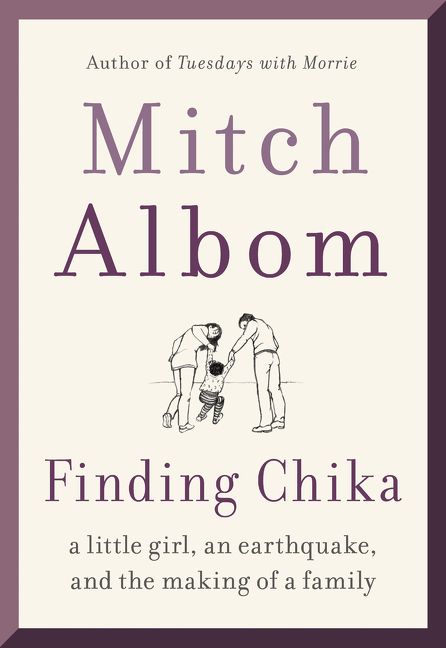
Finding Chika is a celebration of a girl, her guardians, and the incredible bond they formed—a devastatingly beautiful portrait of what it means to be a family, regardless of how it is made.
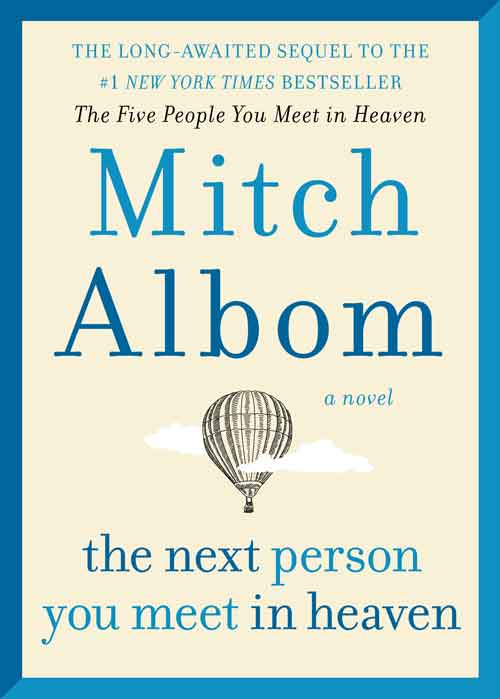
A sequel to the bestseller The Five People You Meet in Heaven, Eddie’s heavenly reunion with Annie — the little girl he saved on earth — is an unforgettable novel of how our lives and losses intersect.
The Story Continues …
Chapter Seven
Read Now
Chapter Eight
Read Now
About the Series
Chapter One
Read Now
Chapter Two
Read Now
Chapter Three
Read Now
Chapter Four
Read Now
Chapter Five
Read Now
There's always more to read with Shelved...
Sign up for Mitch's free newsletter. Non-spammy. When there’s something great to share, we’ll send special updates your way. Exclusive items like excerpts from a new book, signed book giveaways, event alerts, and more. Still need more? Get familiar with Shelved here.

